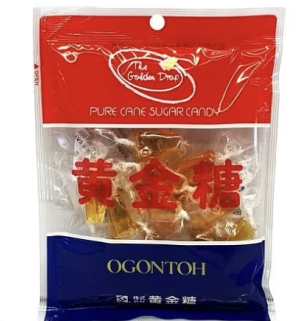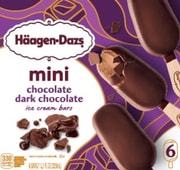Is your favorite candy cancerous? 8 states hit by shocking FDA recall
- Replies 0
The sweet tooth in many of us often craves a sugary treat, but recent news from the FDA has left a bitter taste in the mouths of candy lovers across eight states.
A popular candy, known for its golden hue and sweet aroma, has been pulled from shelves due to the presence of a banned ingredient with links to cancer.
This recall serves as a stark reminder of the importance of food safety and the potential hidden dangers in our snacks.
The Culprit: Acid Red 18
Golden Crop Candy, imported from China by New York-based Blooming Import Inc, was found to contain Acid Red 18, a colorant typically used in manufacturing for dyeing materials such as leather, plastic, and wood, as well as in medicine and cosmetics.
This dye has been banned in the United States due to studies suggesting a connection to hyperactivity and cancer, raising serious concerns about its presence in food products.
The Recall's Reach
The recall affects Golden Crop Candy distributed in New York, Pennsylvania, Maryland, New Jersey, Massachusetts, Missouri, Delaware, and Texas.
With 74 cases of the compromised candies sent to stores, the scale of the recall is significant, though the exact number of individual bags affected remains unclear.

The FDA has classified this as a Class II recall, indicating that exposure to the product may lead to temporary or medically reversible adverse health consequences.
The Problem with Food Dyes
The controversy surrounding food dyes is not new. Blue 1 and Red 40, while approved by the FDA, were also found in the candies without proper labeling.
These dyes have been used for decades to give treats an appealing look, but recent studies have raised alarms over their potential health effects, including hyperactivity and cancer.
In Europe, many of these dyes have been banned or restricted, with products containing them requiring warning labels to inform consumers of the health risks.
Also read: Popular foods could look very different soon—RFK Jr’s FDA cracks down on this ingredient
A Shift in Policy on the Horizon
Health Secretary Robert F. Kennedy Jr. is poised to take action against petroleum-based dyes, which are often made by combining a product from petroleum with another substance to create vibrant colors.
In a forthcoming press conference, he is expected to outline plans to phase out these dyes from American food products, including Blue 1, Red 40, and Yellow 6. Natural alternatives, already in use in Europe, are likely to be promoted as safer options.
Source: CNN / Youtube.
The Wider Implications
The use of artificial food colorings has been under scrutiny not only for their health risks but also for their potential to encourage overconsumption of sugary treats, contributing to weight gain and associated chronic diseases.
States like California and West Virginia have already passed laws banning some artificial food colorings, and at least 30 others are considering similar legislation.
Also read: Is your favorite food banned? The truth about the ingredient behind these recent bans
Looking Ahead: Natural Alternatives and Consumer Awareness
As the FDA moves to remove Red 3 from foods and medications due to cancer concerns, and with many states seeking bans on other dyes like Red 40 and Yellow 5, the push for natural alternatives is gaining momentum.
These natural options not only provide the desired color but also offer a safer choice for consumers.
What You Can Do
If you have purchased Golden Crop Candy, it's crucial to check the product codes (73476513450 and 734765134587) and refrain from consuming the candy.
For those who have experienced adverse effects, the FDA encourages reporting the incident to a consumer complaint coordinator.
Read next: This could change what you eat—State targets 9 cancer-causing ingredients

Have you been affected by the recall? How do you feel about artificial food dyes? Share your thoughts and experiences in the comments below!
A popular candy, known for its golden hue and sweet aroma, has been pulled from shelves due to the presence of a banned ingredient with links to cancer.
This recall serves as a stark reminder of the importance of food safety and the potential hidden dangers in our snacks.
The Culprit: Acid Red 18
Golden Crop Candy, imported from China by New York-based Blooming Import Inc, was found to contain Acid Red 18, a colorant typically used in manufacturing for dyeing materials such as leather, plastic, and wood, as well as in medicine and cosmetics.
This dye has been banned in the United States due to studies suggesting a connection to hyperactivity and cancer, raising serious concerns about its presence in food products.
The Recall's Reach
The recall affects Golden Crop Candy distributed in New York, Pennsylvania, Maryland, New Jersey, Massachusetts, Missouri, Delaware, and Texas.
With 74 cases of the compromised candies sent to stores, the scale of the recall is significant, though the exact number of individual bags affected remains unclear.

The FDA has initiated a recall for Golden Crop Candy in eight US states due to a banned ingredient, Acid Red 18, which is linked to cancer. Image source: j-grab.com.
The FDA has classified this as a Class II recall, indicating that exposure to the product may lead to temporary or medically reversible adverse health consequences.
The Problem with Food Dyes
The controversy surrounding food dyes is not new. Blue 1 and Red 40, while approved by the FDA, were also found in the candies without proper labeling.
These dyes have been used for decades to give treats an appealing look, but recent studies have raised alarms over their potential health effects, including hyperactivity and cancer.
In Europe, many of these dyes have been banned or restricted, with products containing them requiring warning labels to inform consumers of the health risks.
Also read: Popular foods could look very different soon—RFK Jr’s FDA cracks down on this ingredient
A Shift in Policy on the Horizon
Health Secretary Robert F. Kennedy Jr. is poised to take action against petroleum-based dyes, which are often made by combining a product from petroleum with another substance to create vibrant colors.
In a forthcoming press conference, he is expected to outline plans to phase out these dyes from American food products, including Blue 1, Red 40, and Yellow 6. Natural alternatives, already in use in Europe, are likely to be promoted as safer options.
Source: CNN / Youtube.
The Wider Implications
The use of artificial food colorings has been under scrutiny not only for their health risks but also for their potential to encourage overconsumption of sugary treats, contributing to weight gain and associated chronic diseases.
States like California and West Virginia have already passed laws banning some artificial food colorings, and at least 30 others are considering similar legislation.
Also read: Is your favorite food banned? The truth about the ingredient behind these recent bans
Looking Ahead: Natural Alternatives and Consumer Awareness
As the FDA moves to remove Red 3 from foods and medications due to cancer concerns, and with many states seeking bans on other dyes like Red 40 and Yellow 5, the push for natural alternatives is gaining momentum.
These natural options not only provide the desired color but also offer a safer choice for consumers.
What You Can Do
If you have purchased Golden Crop Candy, it's crucial to check the product codes (73476513450 and 734765134587) and refrain from consuming the candy.
For those who have experienced adverse effects, the FDA encourages reporting the incident to a consumer complaint coordinator.
Read next: This could change what you eat—State targets 9 cancer-causing ingredients
Key Takeaways
- The FDA has initiated a recall for Golden Crop Candy in eight US states due to a banned ingredient, Acid Red 18, which is linked to cancer.
- This product, imported from China and predominantly sold at Asian food stores, also contained dyes Blue 1 and Red 40 which were not declared on the label.
- The FDA has classified the recall as a Class II, indicating that exposure to the violative product may cause temporary or medically reversible adverse health consequences.
- Moves are underway, led by health secretary Robert F. Kennedy Junior, to remove petroleum-based dyes from US food, following similar legislation in California, West Virginia, and other states.
Have you been affected by the recall? How do you feel about artificial food dyes? Share your thoughts and experiences in the comments below!






